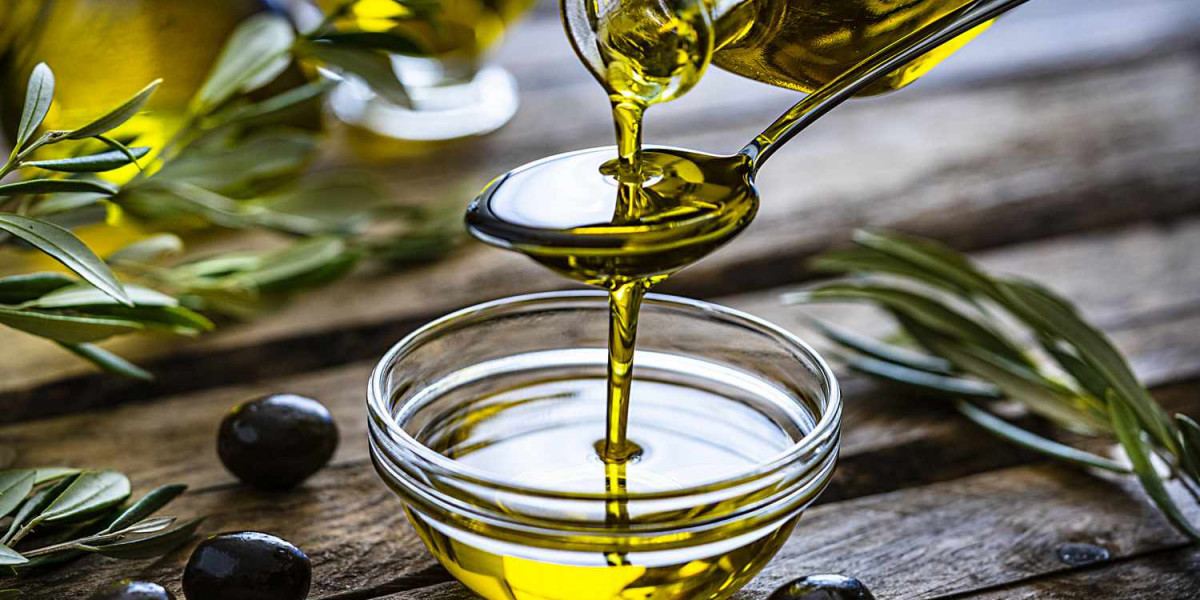Introduction:
Olive oil, a staple of the Mediterranean diet and a time-honored ingredient in various cuisines, is more than just a flavorful addition to meals. Renowned for its exceptional health benefits, olive oil has become a symbol of heart health and overall well-being. This article delves into the extensive array of advantages that olive oil offers, exploring its impact on cardiovascular health, antioxidant properties, anti-inflammatory effects, and its potential role in preventing chronic diseases. From the groves to the kitchen, let's unravel the secrets behind olive oil's status as a heart's guardian.
The Liquid Gold: Understanding Olive Oil Composition
Before we embark on the health journey of olive oil, it's crucial to understand its composition. Olive oil is rich in monounsaturated fatty acids (MUFAs), with oleic acid being the predominant type. These healthy fats are complemented by antioxidants, polyphenols, and other bioactive compounds. The quality of olive oil varies, with extra virgin olive oil standing out for its minimal processing, retaining more of its natural goodness and distinctive flavor.
Heart Health and Cholesterol Management
One of the primary reasons olive oil is celebrated for its health benefits is its positive impact on heart health. MUFAs, such as oleic acid, play a pivotal role in managing cholesterol levels. Clinical studies have consistently demonstrated that incorporating olive oil into the diet can lead to a reduction in low-density lipoprotein (LDL) cholesterol—the so-called "bad" cholesterol—while simultaneously increasing high-density lipoprotein (HDL) cholesterol levels. This dynamic balance contributes to a healthier cardiovascular profile.
Antioxidant Richness: Battling-Free Radicals
Olive oil is a treasure trove of antioxidants, including vitamin E and various polyphenols. These antioxidants act as the body's defense against free radicals—unstable molecules that can cause cellular damage and contribute to aging and various diseases. The powerful combination of antioxidants in olive oil helps neutralize free radicals, promoting cellular health and mitigating oxidative stress.
Anti-Inflammatory Properties: Calming the Body's Storm
Inflammation, when chronic, is associated with a range of health issues, including cardiovascular diseases, arthritis, and neurodegenerative conditions. Olive oil's polyphenols, notably oleocanthal, exhibit potent anti-inflammatory effects. They work to reduce inflammation at the molecular level, potentially contributing to a lower risk of chronic diseases and promoting overall well-being.
Cancer Prevention: Guarding Against Cellular Aberrations
Research suggests that olive oil may play a role in cancer prevention, particularly against breast and colorectal cancers. The antioxidants and anti-inflammatory compounds in olive oil may contribute to inhibiting the growth of cancer cells and preventing the progression of precancerous cells. While more research is needed, preliminary findings highlight the promising potential of olive oil in supporting cancer prevention efforts.
Cardiovascular Health: Nourishing the Heart and Blood Vessels
The benefits of olive oil extend beyond cholesterol management to broader cardiovascular health. Regular consumption has been associated with improved blood vessel function, reduced blood pressure, and enhanced blood clotting profiles. These factors collectively contribute to a healthier cardiovascular system, reducing the risk of heart disease and related complications.
Weight Management: Satiety and Smart Eating
Incorporating olive oil into meals can be a strategic move for those focusing on weight management. The monounsaturated fats in olive oil contribute to a feeling of fullness, helping to control appetite and reduce the likelihood of overeating. By promoting satiety, olive oil can be a valuable ally in maintaining a healthy weight.
Brain Health: Nourishing the Mind
Olive oil's benefits aren't confined to the cardiovascular system—it extends to the brain as well. The monounsaturated fats and antioxidants in olive oil may play a protective role against cognitive decline and neurodegenerative diseases like Alzheimer's. While more research is needed to establish definitive connections, the existing evidence hints at olive oil's potential contribution to maintaining cognitive health.
Improved Glycemic Control: Managing Blood Sugar Levels
For individuals concerned about blood sugar levels, olive oil may offer a helping hand. Studies suggest that incorporating olive oil into a balanced diet can contribute to improved glycemic control. This effect is particularly relevant for individuals with diabetes or those at risk of developing the condition.
Bone Health: Strengthening the Skeletal System
Recent research has explored the potential link between olive oil consumption and bone health. Preliminary findings indicate that regular intake of olive oil may be associated with increased bone mineral density. While more research is needed to establish causation, the existing evidence suggests a positive relationship between olive oil and skeletal health.
Digestive Harmony: Aiding in Digestion
Olive oil has long been associated with digestive health. Its mild laxative properties can aid in preventing constipation and supporting overall digestive function. Whether drizzled over salads or used in cooking, olive oil can be a flavorful and digestive-friendly addition to meals.
Choosing Quality: Extra Virgin Olive Oil's Superiority
Not all olive oils are created equal, and the choice between extra virgin and refined varieties matters. Extra virgin olive oil, obtained through cold pressing and without extensive processing, retains more of its natural compounds, flavor, and nutritional benefits. This premium quality makes extra virgin olive oil the preferred choice for those seeking the full spectrum of health advantages.
Cooking with Olive Oil: Tips for Maximizing Benefits
To make the most of olive oil's health benefits, it's essential to use it appropriately in cooking. While olive oil is versatile, it's important to consider its smoke point— the temperature at which it starts to break down and lose its nutritional value. For high-heat cooking methods like deep-frying, using an oil with a higher smoke point may be more suitable. However, for sautéing, roasting, and baking, extra virgin olive oil adds a distinctive flavor and healthful touch to dishes.
Olive Oil and the Mediterranean Diet: A Holistic Approach
The health benefits of olive oil are magnified when incorporated into the context of the Mediterranean diet—a dietary pattern characterized by an abundance of fruits, vegetables, whole grains, lean proteins, and, of course, olive oil. This holistic approach to nutrition emphasizes the synergy of various food components, contributing to overall health and longevity.
Conclusion: Embracing Olive Oil as a Dietary Ally
As we unravel the exceptional health benefits of olive oil, it becomes evident that this ancient elixir is not merely a kitchen staple but a guardian of the heart and a promoter of overall well-being. From managing cholesterol levels and reducing inflammation to potential contributions to cancer prevention and cognitive health, olive oil has earned its reputation as a liquid gold with far-reaching health advantages. As we continue to explore the intersection of nutrition, health, and culinary delight, olive oil stands tall as a timeless ally on the journey to optimal well-being. Whether drizzled over salads, used as a dipping sauce, or incorporated into a variety of dishes, olive oil invites us to savor the richness of life—one heart-healthy drop at a time.







